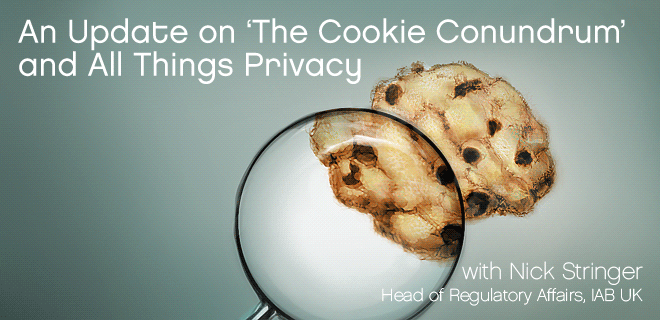
There still seems to be a lot of confusion regarding the ePrivacy Directive, what advice would you offer to Publishers and Data Handlers at this stage?
I think there are three key things: transparency, control and education. The EU self-regulatory programme is moving forward to deliver these and – though not initially designed to be – it is part of a package of measures to help comply with the new law. It includes offering a symbol or ‘icon’ in ads providing internet users with clear information about data collection and use; and – also linked from the icon – mechanisms to control data, such as via www.youronlinechoices.eu. To support this the advertising industry will mount a pan-European education campaign to help internet users understand all this a bit better. Relevant data businesses / platforms and publishers should get involved with the initiative (if they are not already).
Some have speculated that the ePrivacy Directive could force companies to re-locate outside of Europe to avoid being clamped down upon, can you envisage the creation of ‘data havens’?
Let’s hope not (and depending on your interpretation of the new law it may not make much difference.) In any case, if this happens it would be a spectacular ‘own goal’ by Europe’s policy-makers and regulators as the EU digital economy and consumers themselves would be the losers. That is why the UK Government wishes the law to be pragmatic: one that balances safeguarding privacy with the benefits that data-driven ad models can deliver (content for internet users; more effective ads; important revenue for web publishers).
Vodafone is implementing a ‘ Privacy Dashboard’ to bring itself in line with compliance – do you think there can be a uniform process like this to bring Publishers in line with the Directive?
Innovation is key to addressing today’s and tomorrow’s privacy challenges. Privacy Dashboards, Preference Managers, In-Ad Choice Mechanisms are the ways that will give internet users the control and reassurance they want. It is truly what we mean by ‘privacy by design’. Behavioural targeting relies heavily on user data especially in regards to spend in social media – do you think this aspect of the industry will see significant decline? There’s no doubt that a strict interpretation of this new law is a threat. But – if we can – we should also see it as an opportunity to innovate and deliver privacy-enhancing mechanisms. And to work collectively to build market and internet user trust. Only this will help the sector realize its full potential.
What steps do you think need to be taken by the industry to ensure that we maintain self-regulation?
See above. If we think this new law could be bad for business, leaked new data protection proposals at the end of last year were potentially worse. We have our work cut out: innovate to safeguard privacy and to promote trust and help policy-makers and regulators (and consumers) to understand why this type of targeting is beneficial to everyone.